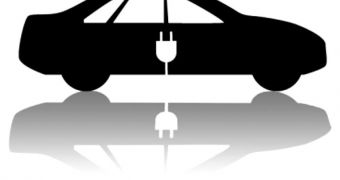In December 2010, a high-level panel of experts met in Cambridge, Massachusetts to discuss how to overhaul the transportation system of the United States, and set in on a path towards relying on electrical and hybrid vehicles. The conclusions of those discussions have just been made public.
According to those who participated in the panel, the technologies needed to make hybrid and electric cars possible are here for the most part. However, they need to be doubled by the correct public policies, and also by infrastructure overhauls.
This is absolutely necessary if these vehicles are to replace those based on petroleum, which currently produce vast amounts of carbon dioxide and other dangerous greenhouse gases. But, in order to the shift to make a difference, the replacement needs to be as complete as possible.
In other words, it's not enough for 1 percent of the population to drive electric cars. The vast majority has to, if the GHG levels are to start decreasing, or at least stop growing. The added advantage of using alternative energies in the US would be that the country would win more energy security.
The new report was released on January 13 by a panel of the MITEI, the Massachusetts Institute of Technology (MIT) Energy Initiative. The December meeting was co-chaired by MITEI Director Ernest Moniz and MIT Institute Professor John Deutch.
“The predominant view was that if you had a strong carbon policy, many of the steps that would have to be taken” to reduce petroleum dependence would happen naturally,” Deutch explains.
“But given the present political realities in the US, we’re not going to have that, so the most desirable policy option is not in front of us,” adds the expert, saying that participants at the meeting came from a variety of backgrounds and fields of research.
Advanced research and development in this area was identified as one of the main mechanisms through which a catastrophic situation could be avoided in the future. Government policies need to be adjusted to this reality, and the necessary funds allotted to the relevant research groups.
Overhauling and updating the national power grid is another important priority, which is absolutely necessary if electric vehicles are to ever roam the streets in large numbers. The electric infrastructure dictates the efficiency and appeal of electric cars.
The team concluded by saying that the world needs to decide on one technology (out of plug-in hybrids, fuel cells, biofuels and so on), and develop it as much as possible. Following many routes may delay the change by decades, the experts say.

 14 DAY TRIAL //
14 DAY TRIAL //